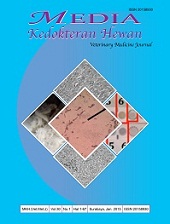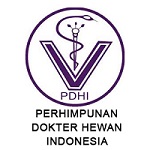The Antiproliferative and Spermicide Effects of D-Limonene on Gonadal Function in Male Albino Rats: A Comprehensive Study on Spermatogenesis and Gonadal Morphometry
Downloads
This study investigates the effects of D-Limonene on reproductive health parameters in albino rats, focusing on sperm quality and gonadal morphology. The study involved administering D-Limonene at various doses to assess their impacts on sperm parameters, including motility, viability, and abnormalities, as well as gonadal morphometry. The D-Limonene was applied at doses of 50, 100, and 150 mg/kg BW for 60 days, followed by histopathological analysis of testicular tissues. Results indicated that D-Limonene treatment revealed a dose-dependent decline in sperm quality parameters. Specifically, total motility, progressive motility, and viability decreased, while abnormality rates increased with higher D-Limonene doses. Notably, the highest dose (150 mg/kg BW) led to the most significant reductions in sperm motility and viability. Additionally, the presence of necrotic cells and structural changes in testicular tissues were observed, supporting the adverse impact of D-Limonene on reproductive function. The findings suggest that D-Limonene exhibits potential as an effective spermicide, highlighting its utility in population control applications. The study underscores the need for further research to fully understand the mechanisms behind these effects and their implications for reproductive health.
Abedin, S.N., Baruah, A., Baruah, K.K., Kadirvel, G., Katiyar, R., Khargharia, G., Bora, A., Dutta, D.J., Sinha, S., Tamuly, S., Phookan, A., and Deori, S. 2023. In Vitro and In Vivo Studies on the Efficacy of Zinc-Oxide and Selenium Nanoparticle in Cryopreserved Goat (Capra hircus) Spermatozoa. Biol. Trace Elem. Res., 201(10), pp.4726–4745. DOI: https://doi.org/10.1007/s12011-022-03551-6
Allan, K.J., Biggs, H.M., Halliday, J.E., Kazwala, R.R., Maro, V.P., Cleaveland, S., and Crump, J.A. 2015. Epidemiology of Leptospirosis in Africa: A Systematic Review of a Neglected Zoonosis and a Paradigm for 'One Health' in Africa. PLoS Negl. Trop. Dis., 14;9(9), pp.e0003899. DOI: https://doi.org/10.1371/journal.pntd.0003899
Blasdell, K.R., Morand, S., Perera, D., and Firth, C. 2019. Association of rodent-borne Leptospira spp. with urban environments in Malaysian Borneo. PLoS Negl. Trop. Dis., 13(2), pp.e0007141. DOI: https://doi.org/10.1371/journal.pntd.0007141.
Bradley, E.A., and Lockaby, G. 2023. Leptospirosis and the Environment: A Review and Future Directions. Pathogens, 12, pp.1167. DOI: https://doi.org/10.3390/pathogens12091167.
Cordeiro, F., Gonçalves, V., Moreira, N., Slobodticov, J.I., De Andrade Galvão, N., De Souza Spinosa, H., Bonamin, L.V., Bondan, E.F., Ciscato, C.H.P., Barbosa, C.M., and Bernardi, M.M. 2018. Ivermectin acute administration impaired the spermatogenesis and spermiogenesis of adult rats. Res. Vet. Sci., 117, pp. 178–186. DOI: https://doi.org/10.1016/j.rvsc.2017.12.013.
Hamoud, A. 2019. Possible Role of Selenium Nanoparticles on Gentamicin-Induced Toxicity in Rat Testis: Morphological and Morphometric Study. Egyptian J. Hist., 42 (4): 861–873. DOI: https://doi.org/10.21608/ejh.2019.9926.1093
Hussain, T., Kandeel, M., Metwally, E., Murtaza, G., Kalhoro, D.H., Yin, Y., Tan, B., Chughtai, M.I., Yaseen, A., Afzal, A., and Kalhoro, M.S. 2023. Unraveling the harmful effect of oxidative stress on male fertility: A mechanistic insight. Front. Endocrinol., 14, pp.1070692. DOI: https://doi.org/10.3389/fendo.2023.1070692.
Hussein, S.M., El-Fadaly, A.B., Metawea, A.G., and Khaled, B.E.A. 2020. Aging changes of the testis in albino rat: light, electron microscopic, morphometric, immunohistochemical and biochemical study. Folia Morphol., 79, pp. 503–515. https://doi.org/10.5603/FM.a2019.0102.
Imrat, P., Suthanmapinanth, P., Saikhun, K., Mahasawangkul, S., Sostaric, E., Sombutputorn, P., Jansittiwate, S., Thongtip, N., Pinyopummin, A., Colenbrander, B., Holt, W.V., and Stout, T.A.E. 2013. Effect of pre-freeze semen quality, extender and cryoprotectant on the post-thaw quality of Asian elephant (Elephas maximus indicus) semen. Cryobiology, 66 (1), pp.52–59. DOI: https://doi.org/10.1016/j.cryobiol.2012.11.003.
Karpagam, K.B., and Ganesh, B. 2020. Leptospirosis: A neglected tropical zoonotic infection of public health importance—An updated review. Eur. J. Clin. Microbiol. Infect. Dis., 39(5), pp. 835–846. DOI: https://doi.org/10.1007/s10096-019-03797-4.
Lin, H., Li, Z., Sun, Y., Zhang, Y., Wang, S., Zhang, Q., Cai, T., Xiang, W., Zeng, C., and Tang, J. 2024. D-Limonene: Promising and Sustainable Natural Bioactive Compound. Appl. Sci., 14(11), pp.4605. DOI: https://doi.org/10.3390/app14114605.
Massei, G., Jacob, J., and Hinds, L.A. 2024. Developing fertility control for rodents: A framework for researchers and practitioners. Integr. Zool., 19, pp. 87–107. DOI: https://doi.org/10.1111/1749-4877.12727.
McGee, C.F., McGilloway, D.A., and Buckle, A.P. 2020. Anticoagulant rodenticides and resistance development in rodent pest species – A comprehensive review. J. Stor. Prod. Res., 88, pp. 101688. DOI: https://doi.org/10.1016/j.jspr.2020.101688.
Minter, A., Costa, F., Khalil, H., Childs, J., Diggle, P., Ko, A.I., and Begon, M. 2019. Optimal Control of Rat-Borne Leptospirosis in an Urban Environment. Front. Ecol. Evol., 7, pp.209. DOI: https://doi.org/10.3389/fevo.2019.00209
Nagpal, I., and Abraham, S.K. 2017. Ameliorative effects of gallic acid, quercetin and limonene on urethane-induced genotoxicity and oxidative stress in Drosophila melanogaster. Toxicol. Mech. Methods., 27, pp.286–292. DOI: https://doi.org/10.1080/15376516.2016.1278294.
Nascimento, R.P.D., Reguengo, L.M., Machado, A.P.D.F., and M.R. Marostica Junior. 2022. The preventive and therapeutic potential of native Brazilian fruits on colorectal cancer. Food Biosci., 46: 101539. DOI: https://doi.org/10.1016/j.fbio.2021.101539.
Ni, F.-D., Hao, S.-L., and Yang, W.-X. 2019. Multiple signaling pathways in Sertoli cells: Recent findings in spermatogenesis. Cell Death Dis., 10, pp. 541. DOI: https://doi.org/10.1038/s41419-019-1782-z.
Oduwole, O.O., Huhtaniemi, I.T., and Misrahi, M. 2021. The Roles of Luteinizing Hormone, Follicle-Stimulating Hormone and Testosterone in Spermatogenesis and Folliculogenesis Revisited. Int J Mol Sci, 22(23), pp.12735. DOI: https://doi.org/10.3390/ijms222312735.
Pal, M., and Hadush, A. 2017. Leptospirosis: An infectious emerging waterborne zoonosis of global significance. Air Water Borne Dis., 6,pp.1. DOI: https://doi.org/10.4172/2167-7719.1000133.
Rao, A.M. 2020. Rodent Control a Tool for Prevention of Leptospirosis - A Success Story on Human Leptospirosis with Gujarat State. JCD, 52, pp.38–42. DOI: https://doi.org/0.24321/0019.5138.202028
Salehi, B., Venditti, A., Frezza, C., Yücetepe, A., Altuntaş, U., Uluata, S., Butnariu, M., Sarac, I., Shaheen, S., Petropoulos, S., Matthews, R., Kılıç, K.S, Atanassova, C., Adetunji, C.O, Ademiluyi, A.O., Özçelik, B., Valere Fokou, P.T., Martins, N., Cho, W.C., and Sharifi-Rad, J. 2019. Apium Plants: Beyond Simple Food and Phytopharmacological Applications. Appl. Sci., 9 (17), pp.3547. DOI: https://doi.org/10.3390/app9173547.
Soo, Z.M.P., Khan, N.A., and Siddiqui, R. 2020. Leptospirosis: Increasing importance in developing countries. Acta Trop., 201, pp.105183. DOI: https://doi.org/10.1016/j.actatropica.2019.105183.
Tahir, M.B., Ahmad, A., Iqbal, T., Ijaz, M., Muhammad, S., and Siddeeg, S.M. 2020. Advances in photo-catalysis approach for the removal of toxic personal care product in aqueous environment. Environ. Dev. Sustain., 22, pp.6029–6052. DOI: https://doi.org/10.1007/s10668-019-00495-1.
Witmer, G.W. 2018. Perspectives on Existing and Potential New Alternatives to Anticoagulant Rodenticides and the Implications for Integrated Pest Management. In: Van Den Brink, N.W., Elliott, J.E., Shore, R.F., and Rattner, B.A. (Eds.), Anticoagulant Rodenticides and Wildlife, Emerging Topics in Ecotoxicology, pp.357–378. Cham: Springer International Publishing. DOI: https://doi.org/10.1007/978-3-319-64377-9_13.
Copyright (c) 2025 Akbar Dimas Herdiansyah, Neo Rakka Yudistira, Nadya Ashila Afandik, Nazwa Meiliza, Kresna Ryan Ardiansyah, Trilas Sardjito, Samira Musa Sasi

This work is licensed under a Creative Commons Attribution-ShareAlike 4.0 International License.

Veterinary Medicine Journal by Unair is licensed under a Creative Commons Attribution-ShareAlike 4.0 International License.
1. The Journal allows the author to hold the copyright of the article without restrictions.
2. The Journal allows the author(s) to retain publishing rights without restrictions
3. The legal formal aspect of journal publication accessibility refers to Creative Commons Attribution Share-Alike (CC BY-SA).





11.jpg)







11.png)













